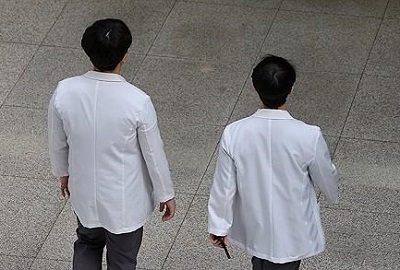Seoul, (Samajweekly) South Korean Health Minister Cho Kyoo-hong said on Sunday that the government would hasten its policy of increasing the number of medical students while issuing warnings against defiant trainee doctors who attacked their colleagues returning to the medical field.
“It is completely unacceptable to attack people who are working day and night in the field and coerce them to participate in the collective action,” Cho Kyoo-hong told a government response meeting, Yonhap news agency reported.
“We will thoroughly investigate it and take strict action.”
Allegations have recently surfaced that some trainee doctors have disclosed the names and other information of colleagues not participating in the walkout and cyberbullied them, with some facing verbal harassment upon returning to the workplace.
At the same time, Cho Kyoo-hong also stressed that the government is ready to talk with the medical community to iron out the thorny issue.
A mass walkout by about 12,000 trainee doctors entered its 20th day Sunday and caused wider disruptions in health care services across South Korea, prompting the government to implement emergency policies to make up for the shortage of medical staff.
More than 90 per cent of 13,000 medical interns and residents have remained off their jobs through mass resignations for nearly three weeks in protest of the government’s decision to increase medical school enrollment by 2,000 next year.
In response, health authorities launched a pilot programme late last month enabling nurses to undertake specific responsibilities held by doctors in a restricted capacity.
With emergency units at military hospitals opened to the public, moreover, the government also announced plans to send military and public doctors to private hospitals nationwide for the ensuing four weeks from Monday.
At the same time, the government said it will hasten its policy of increasing the number of medical students while issuing warnings against defiant trainee doctors who attacked their colleagues returning to the medical field.
“It is completely unacceptable to attack people who are working day and night in the field and coerce them to participate in the collective action,” Cho Kyoo-hong told a government response meeting. “We will thoroughly investigate it and take strict action.”
Allegations have recently surfaced that some trainee doctors have disclosed the names and other information of colleagues not participating in the walkout and cyberbullied them, with some facing verbal harassment upon returning to the workplace.
At the same time, Cho also stressed that the government is ready to talk with the medical community to iron out the thorny issue.
The government has already taken steps to suspend the medical licenses of striking trainee doctors, urging them to return to work.
Since Tuesday, the government has been sending out documents to trainee doctors who have yet to return to their jobs, giving prior notice on the suspension of their medical licenses.
The document includes details on the government’s back-to-work order and warns that those who do not submit feedback by March 25 could have their licenses suspended in accordance with relevant procedures.
Trainee doctors can file administrative complaints against the government in the event their licenses are suspended.
The government’s hawkish stance to punish striking trainee doctors seemed to encourage some professors at medical schools to leave their jobs and join the collective action by younger doctors.
Some professors have already tendered their resignations in protest against their universities’ decision to accept the government’s plan to expand the medical school enrollment.
A group of medical professors had a meeting Saturday to discuss ways to break the deadlock but failed to reach a conclusion.
The collective action by trainee doctors, who play a vital role in assisting senior doctors during surgeries and dealing with inpatients while training at major general hospitals, has resulted in widespread cancellations and delays in surgeries and emergency medical treatment at general hospitals nationwide.
Critics say the striking doctors oppose the government plan as they worry adding more doctors would result in tougher competition and lower income.
The Korean Medical Association (KMA), the country’s biggest lobby group for doctors, argues the government plan won’t fix fundamental problems in the medical system, including doctor shortages in fields seen as lower paying, as well as a high concentration of doctors in urban areas.









